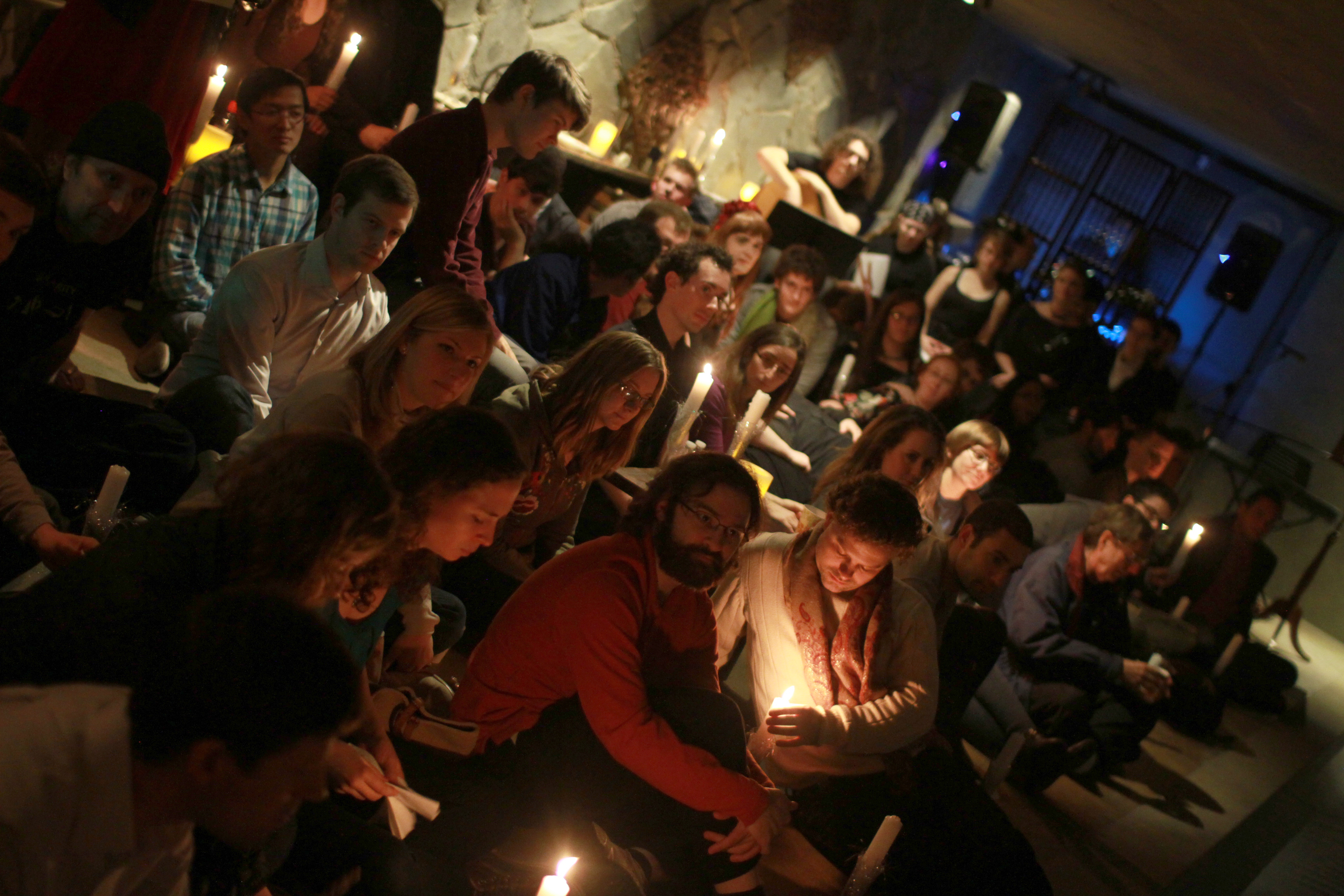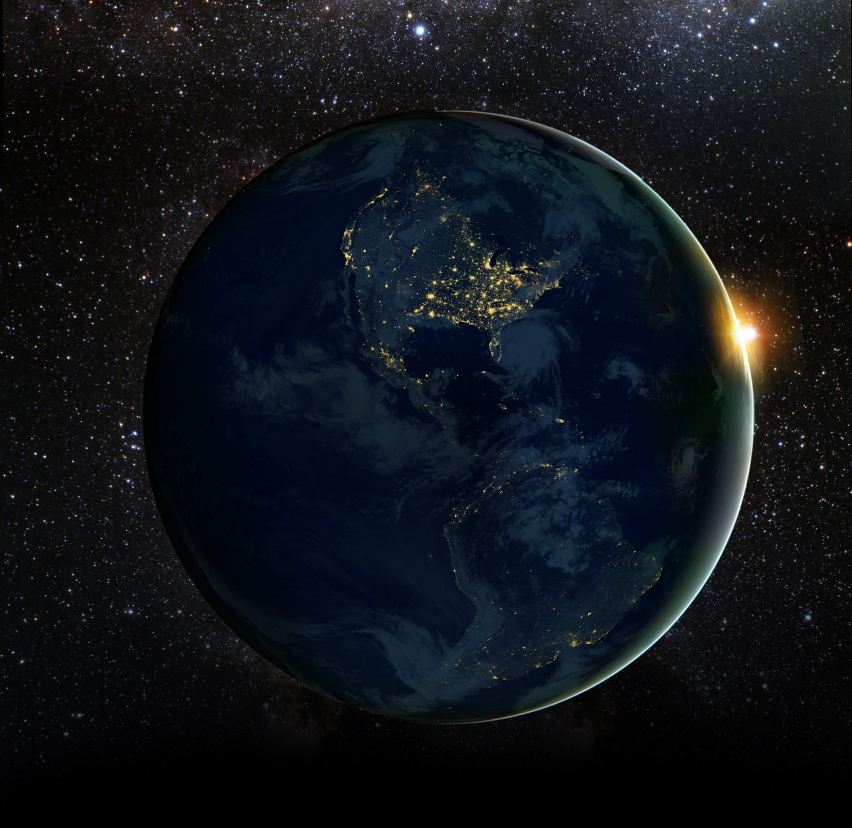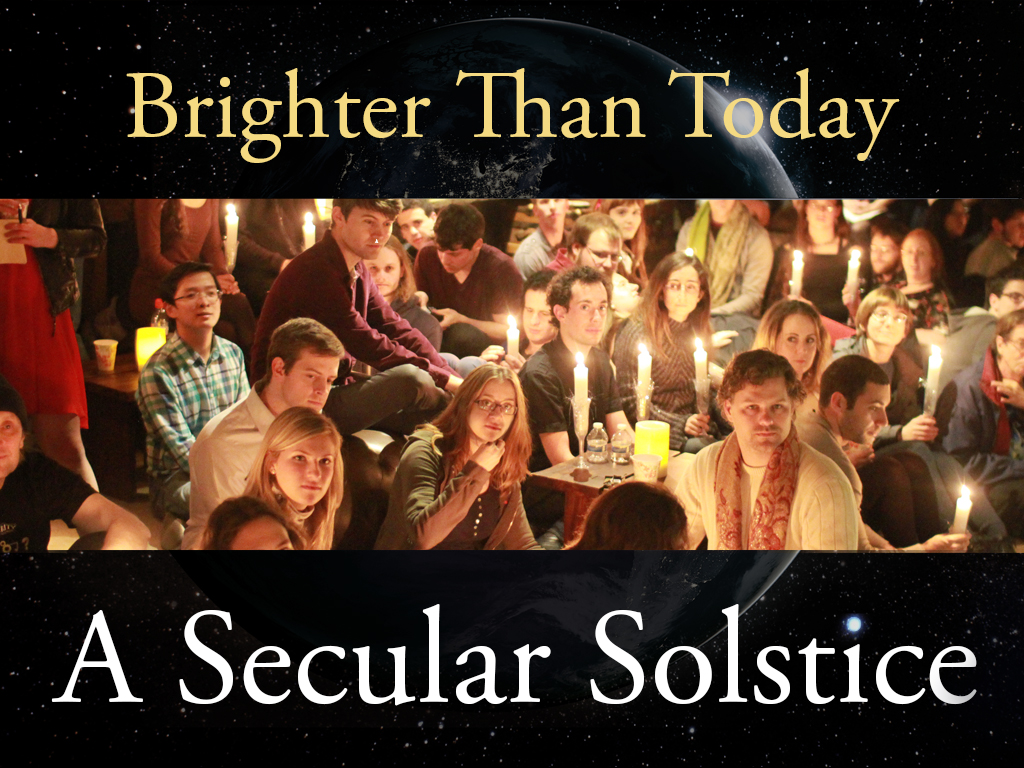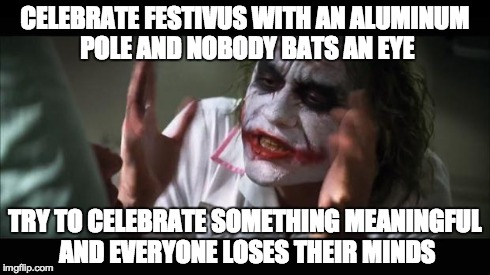
“What do you do?”
“Me? I’m a photographer. You?”
“Oh, I invent rituals.”
My cocktail party conversations have gotten a bit more interesting since I started the Secular Solstice.
I’ve gotten loads of positive feedback about the Solstice. People have come up to me, thanking me profusely for creating something they didn’t even know they needed.
But when I first mention it, and then try to explain what I mean, there are two common reactions: bewilderment, and fear.
In this article, I’ll be taking on the first of those reactions.
“Why are you doing this?”
The kind of ritual I create is pretty strange to modern America. It’s not that it’s an atheist gathering – “nonreligious” is the fastest growing religion. It’s not even that it’s a bunch of atheist ritual and ceremony. We’ve had that for decades.
It’s that it takes itself seriously.
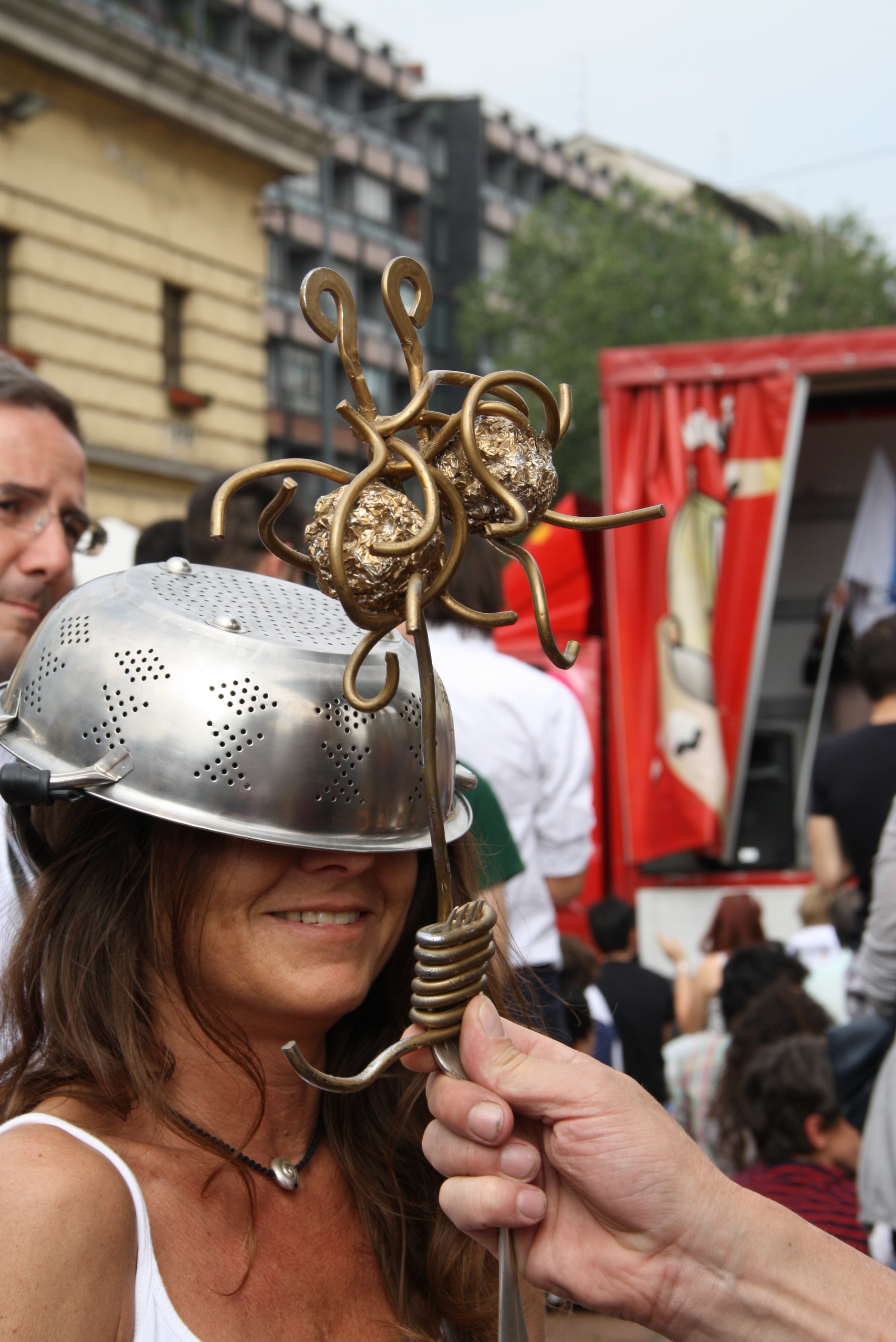
We live in an age of irony. Tell people that you’re throwing a “Festivus for the Rest of Us” – a joke of a holiday where you celebrate by complaining at each other and decorate with a simple aluminum pole – and people laugh and nod.
Tell people that you’re going to get together with candles, gradually plunge yourself into darkness, tell sad stories that make people cry and then sing triumphantly about the progress of humankind… some people will freak out, and other people will just be confused.
The bewilderment reaction generally comes from people who have never been especially religious. They may have celebrated Christmas or Hanukkah as cultural time of family-togetherness, but never as a serious attempt to reflect upon an ancient story that connects them to something greater than themselves.
My family was half atheist, half Catholic. But our Christmas Eve was pretty hardcore. Twenty to thirty relatives and neighbors, all gathering into one house to eat Roast Beast™ and then sing songs for almost 3 hours straight. When we start singing, a quarter of us are drunk, loud, and singing ridiculous songs about reindeer, horribly off-key.
Over time, those songs turn from boisterous to solemn. We sing about two weary travelers, who journeyed long and hard. They had no money. One of them was heavy with child, the other pushing down They made a bed for themselves as best they could in a manger that stank of livestock. In abject poverty, they brought a miracle child into the world.
Kings followed a star for hundreds of miles to see him, and they gave him gold. Shepherds and urchin boys came, and they gave him music and love.
The songs leave it ambiguous which of these things mattered more.
I don’t believe these stories are true. I don’t even necessarily believe the specific messages they teach are that useful in today’s world. But there is a power to these stories, a beautiful idea – that greatness and hope can come from humble places, that peace will one day come to a weary world.
After three hours of singing, we’re exhausted. It’s late at night. We lie there on the couch, cuddled up, bellies bloated with peppermint cookies and egg nog. Eyes struggling to stay open in the dimming firelight. We barely make it through the last couple songs.
Christmas is an ordeal.
But then we get to the last couple songs. And as the fireplace burns to a close, the light fading, we huddle close. We sing a song in memory of my grandfather.
His favorite song. It goes like this:
Let there be peace on Earth, and let it begin with me.
Let there be peace on Earth, the peace that was meant to be.
With God as our father, we are family.
Let us walk with each other, in perfect harmony.
Let peace begin with me. Let this be the moment now.
With every step I take, let this be my solemn vow.
To take each moment and live each moment in peace eternally.
Let there be peace on Earth, and let it begin with me.
And even though I don’t believe that God was our father, or that Jesus was his son, there is a palpable sacredness in the air. I can tell that the people who wrote these songs cared deeply about our world and our future. I feel that hope, and I feel connected – at least tangentially, to something greater than myself.
Many atheists are happy to celebrate Secular Christmas – keep all the holiday cheer, keep the family togetherness, keep the presents and Roast Beast™ and decorations. Just… ignore that central story about a child born into poverty and the kings who traveled for hundreds of miles to see him.
There’s certainly beauty to that family togetherness and cheer. But Secular Christmas is missing something really important. Humans need stories.
Religious Christmas enshrines a lot of stories I think are false. There are better stories we can tell now. But if you *just* remove the old without creating something new, you are gutting an important part of the holiday experience. Family togetherness is only half the equation.
I wanted a sacred holiday celebrating the ideas most precious to me. I wanted a holiday about how yes, hope and greatness can come from humble places. Yes, peace might one day come to a weary world.
But it will not come because God sent us a miracle child, uniquely special to offer us salvation.
If there is peace on earth and good will among humans, it will be because all across the globe, across history, children were born who saw an unjust world – and those children grew up and worked to change it.
Over time, people saw their neighboring tribes not as enemies or rivals but as friends and collaborators. Over time, we developed the tools to understand and feed the world, so that even in the dead of winter, no one need go hungry.
Once upon a time, long ago on a pale blue dot, tiny proteins locked together and began to replicate. An unliving world came to life.
A blind, unintelligent process somehow created intelligent beings.
A cold, unloving universe somehow created creatures that could love one another.
That’s something worth celebrating, that deserves beautiful art and poetry and song. It deserves fun and humor too, for sure. But it also deserves sincere people, sharing their hope for the future.
It may not be for everyone. Different ideas and frameworks resonate with different people. I should be clear – I’m not aiming to create the One True secular winter holiday. I’m trying to take one particular narrative, and tell it well.
To create all this from scratch is a huge endeavor. It took hundreds of years to create Modern Christmas – the bizarre gestalt of Christian stories and pagan traditions and capitalism that, for good or for ill, has captured the public’s imagination. I’m doing the best I can. The people who have come so far to the Solstice have told me this gave them something special, that some of them didn’t even know they were missing.
But I need help. If this succeeds, it will be because people came together for big festivals that captured the public eye – and took small pieces of that and made it their own, adapting it to meet the needs of their community.
I hope you’ll support the Solstice Kickstarter, and I hope you’ll considering running your own event for your friends and family. I’ll be updating this site with free materials – songs about science and civilization, and guides on how to get new holiday traditions started. The kickstarter will pay for a concert venue, a print-run of the Solstice Book of Traditions, and recording high quality music.
A hundred years from now, I hope this has become a bizarre gestalt of traditions I would never have predicted, but which has made the world brighter.
